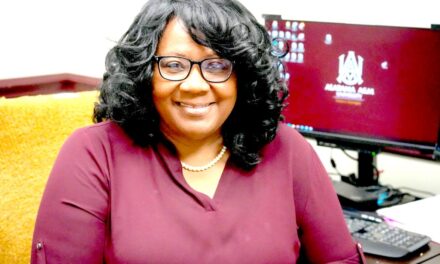
By Sponsored Content
Most of us know someone living with Alzheimer’s disease or another type of dementia. This may be particularly true for Maryland residents, as a recent study suggests two Maryland counties have among the highest estimated county-level prevalence of Alzheimer’s disease in the nation. This includes Baltimore City and Prince George’s County.
Prevalence studies also suggest that Black and Hispanic older adults are more likely to have Alzheimer’s disease or other forms of dementia compared with non-Hispanic Whites. While not completely understood, these racial/ethnic differences likely have multiple potential causes, including differences in the frequency of medical conditions that increase risk for cognitive decline (such as diabetes and high blood pressure) and social determinants of health, including life experiences and health system barriers (such as access to care). To better understand these disparities and to find innovative treatments that benefit everyone, studies need to include more diverse participants.
While there is not much we can do about getting older or family histories—two of the biggest risk factors for developing dementia—we can make lifestyle choices that support brain health and help reduce risk for memory loss.

Among the most important things we can do to reduce the risk of developing dementia is to manage conditions that affect heart and blood vessels, including: controlling blood pressure; managing diabetes and high cholesterol; maintaining a healthy body weight; and quitting use of tobacco products. The AARP has summarized the “Six Pillars of Brain Health” to optimize cognitive aging and to allow people to BE MORE:
- Be social: stay connected with others and maintain meaningful relationships (either in-person or virtually)
- Engage your brain: pursue mentally stimulating hobbies and activities
- Manage stress: develop strategies to keep stress levels in check
- Ongoing exercise: be physically active throughout the day and maintain regular, moderate physical activities
- Restorative sleep: prioritize obtaining restful sleep
- Eat right: consume a nutritious, heart-healthy diet
Another way to be proactive about brain health and aging is to volunteer in research studies with the Johns Hopkins Alzheimer’s Disease Research Center (JHADRC). Individuals with or without memory problems may be eligible to participate. Many studies include access to experts, free memory testing, and compensation. Study volunteers are essential to helping find better treatments and interventions for memory loss, and brain health breakthroughs. Plus, volunteers can feel good about supporting future generations, and about being part of the search for improved treatments and cures. To learn more, please visit www.alzresearch.org/participate-in-research/ or call 443-542-7489.
For additional information:
- Visit the JHADRC’s website page about brain health: www.alzresearch.org/brainhealth;
- Watch the “Memory Matters” video series on YouTube (@johnshopkinsadrc7769) which includes short talks on topics related to memory loss and brain health: and
Follow “Johns Hopkins Memory & Aging” on Facebook (jhmemoryandaging) & X/Twitter (@jh_memory_aging) for the latest updates on all these topics.
The post Minding Your Brain Health: Your Best Defense Against Memory Loss, Alzheimer’s, & Dementia appeared first on AFRO American Newspapers.











